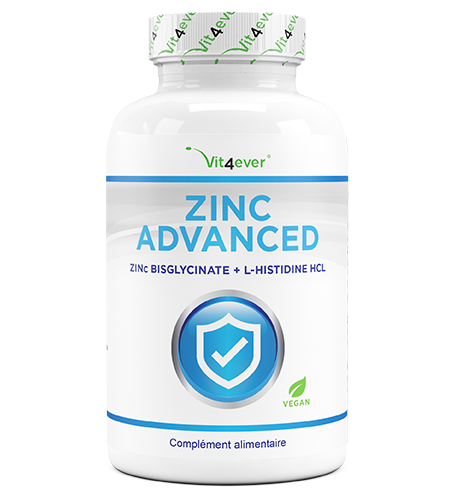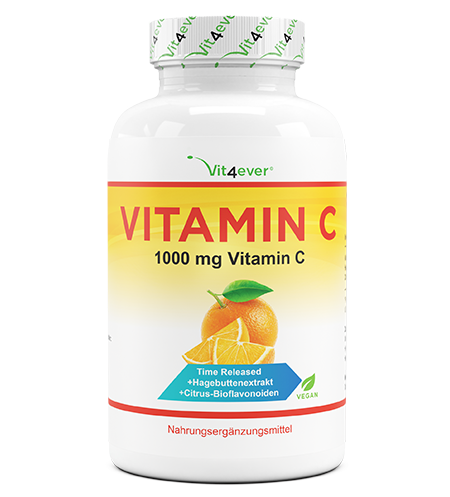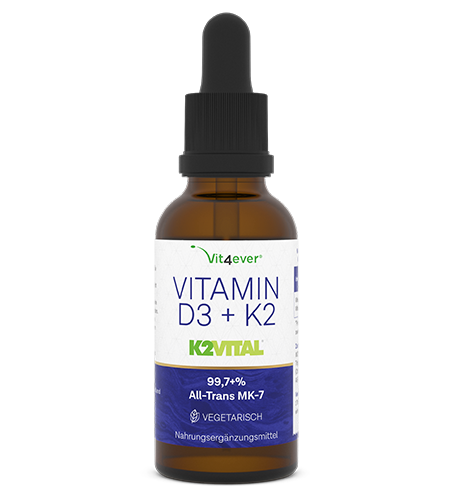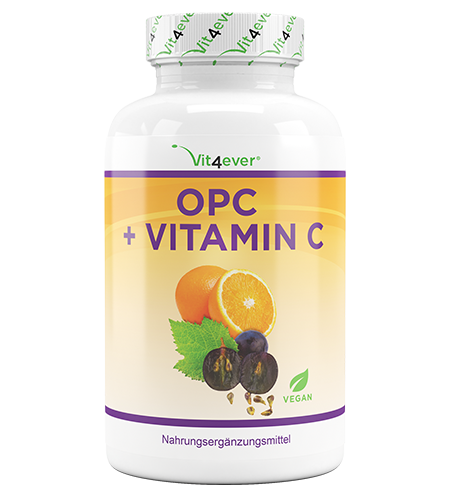How does the immune system actually work?
The immune system is the body's defense system, it is essential and therefore vital.
Its task is to protect us from pathogens in the form of microbes = microorganisms such as viruses, bacteria, fungi, parasites, as well as toxins and malignant cell changes and to help heal external and internal injuries.
For this reason, it is also called a defense system against the invasion of germs. Here, a healthy body can certainly distinguish between "foreign / evil" viruses and bacteria, as well as "good" such as intestinal bacteria.
As long as the immune system functions smoothly, we are unaware of all these processes in our body. Only when the immune defense fails or is weakened do pathogens have an easy time and we become ill.
Our body distinguishes here between 2 types, the innate defense system and the acquired defense system
Innate immune system: Counts the skin, mucous membranes, stomach acid and "reflexes" such as coughing and sneezing. They are the first line of defense when it comes to protecting the body from external pathogens. And this is how it all works:
Through coughing or sneezing pathogens, which are found in dust and dirt, are transported out of the body.
Our skin is slightly acidic and has a light oily film, so the penetration of foreign germs through the skin is prevented.
Germs, bacteria = microorganisms, which penetrate through our mouth and throat area, are on the one hand protected by small hairs in the trachea the trachea and on the other hand by the stomach acid gastric acid, which consists of 0.5 percent hydrochloric acid.
Our Saliva and the tear fluid contain enzymes (destroy toxins from the environment and heal wounds), which can kill bacteria.
Eracquired defense system: Has its basis in the white blood cells (lymphocytes), these form so-called antibodies depending on the type of white blood cells and use them specifically against very specific pathogens with which the body has had previous contact. One therefore also speaks of a learned immune response = reaction. These include the T cell = guard cell, B cell = killer cell and the macrophage.
Because the specific defense system is always learning and adapting, the body can also fight certain bacteria or viruses that change over time.
Which organ / organs are responsible for the immune system?
The immune system includes organs responsible for the formation and maturation of defense cells, or lymphocytes. The lymphatic organs include the bone marrow and the thymus = thymus gland. But also other organs such as the tonsils, spleen, intestines, mucous membranes of the intestines, nose and throat. The skin and lymph nodes are essential for a well and normally functioning immune system.
Why should I strengthen my immune system?
A well-functioning immune system = defenses is not only essential for our body, but even more important for our well-being. After all, who likes to lie at home sick or to be worn out and broken? In addition, if one is constantly or over a longer period of time exposed to symptoms of illness, the physical burden can also quickly become a psychological burden or this is added.
In our everyday lives, however, we are constantly exposed to pathogens in the form of viruses and bacteria. According to current knowledge, there are more than 200 different cold viruses alone and countless bacteria. To avoid all this is impossible and would not really enrich our lives. After all, what would a nice and fulfilling life be if, for example, you couldn't meet friends and people who mean something to you, or if you weren't even allowed outside your front door? In addition, there are numerous environmental influences such as "acid" rain, UV radiation, polluted air and much more, over which we unfortunately have no real influence.
Even though this all sounds rather gloomy, we don't need to get scared, because our immune system is pretty smart! As described above, a healthy immune system has the ability to react to harmful pathogens and even if it does not know them yet, it can learn to be better prepared the next time. In addition, we have the opportunity to actively and specifically support our immune system. So we can make it better, stronger and more resistant to any kind of influences!
How do I actually strengthen my immune system?
We can strengthen the immune system in many different ways. The basis for this is always the provision of the right nutrients such as vitamins, minerals and antioxidants, as these support our defense cells or are even directly involved in the defense. The be-all and end-all here is also a healthy and balanced diet, since our body usually cannot produce the required vitamins and minerals itself, or cannot produce them sufficiently, and these must therefore be covered for the most part through food.
We often read that the resistance of our immune system depends on our genes and that these are inherited (DNA heredity). This is certainly not wrong, however, we share this view only 50%. Since this gives the impression that if one is not blessed with a resistant immune system, little could be done about it and thus it would affect the next generation again. We are of the opinion, if that were so and one would have no influence on this, then we would be today already all extinct and that one can by all means effectively and actively change something about it 😉!
Our tips on how to sustainably strengthen the immune system and rebuild a weak immune system!
- Healthy and balanced diet
A diet rich in nutrients and fiber is always the cornerstone of a well-functioning immune system and covers all macro- and micronutrients that our body needs. The most important thing here is to eat a varied diet and, if possible, stay away from saturated fatty acids and simple sugars, as these substances put our metabolism under significant pressure and can thus damage the immune system.
- Sauna and alternating showers
Going to the sauna with subsequent alternating showers has "only" an indirect effect on the immune system. As this trains the body to react and adapt more quickly to temperature differences or fluctuations. In addition, it is excellent for relaxing and combating stress.
- Drink enough fluids
Water is not called the source of life without reason and is almost the "classic" when it comes to a healthy immune system. Our body also consists of 50-60% water, in infants it is even 70-80%. Water flushes our bodies and keeps our mucous membranes moist so that invaders such as bacteria can be better removed. Fluid intake should ideally be 300-350ml per 10kg / body weight.
- Sufficient sleep of at least 7h per night
Especially during sleep, the body comes to rest and can regenerate best. In addition, stress is taken away from us and the immune cells are stimulated to work by the release of growth hormones. One theory says that the sleep hormone melatonin, which is released in the pineal gland, is supposed to be one of the strongest antioxidants of our body and therefore a very good tip for a weakened immune system. (unfortunately, this theory has not yet been sufficiently investigated, even though it seems obvious that this could be the case).
- Sport and exercise
The booster for the immune system! Sport mobilizes various defense cells / killer cells. It helps to regulate blood pressure and metabolism. The most important thing is that you exercise regularly, for this you don't have to lift the heaviest weights or run kilometers like a marathon runner. It is enough if you jog for 30 minutes a day or walk one way or the other. Especially light endurance training like jogging, swimming or cycling are very suitable.
Watch out! If you don't feel well or even if you already have a cold or inflammation, you should definitely avoid sports and rather rest. Your body needs the energy to fight the pathogens.
- Vitamins - Minerals & Antioxidants
Enclosed we show you the vitamins, as well as minerals, which are also demonstrably can contribute to the development and maintenance of a normal functioning immune system. This was confirmed by the EFSA (European Food Safety Authority) in the form of the Health Claims Regulation (EC No. 1924/2006).
Vitamins: Vitamin A / Vitamin C / Vitamin D3 / Vitamin B12 / Vitamin B6 / Folate
Minerals: Zinc / Iron / Copper / Selenium
In addition, there is the large group of antioxidants!
Antioxidants are substances (often contained in plant extracts and superfoods) that provide protection against "free radicals" and are also called radical scavengers. Free radicals are, among other things, "bad" degradation products that our body partly produces itself during various metabolic processes, but which we also absorb through harmful external influences. They attack healthy cells and are considered "aggressive", in the worst cases they can also damage the structure of healthy cells.
Among the most popular and powerful antioxidants:
Vitamin E / Astaxanthin / Glutathione / OPC / Curcuma / Coenzyme Q10






